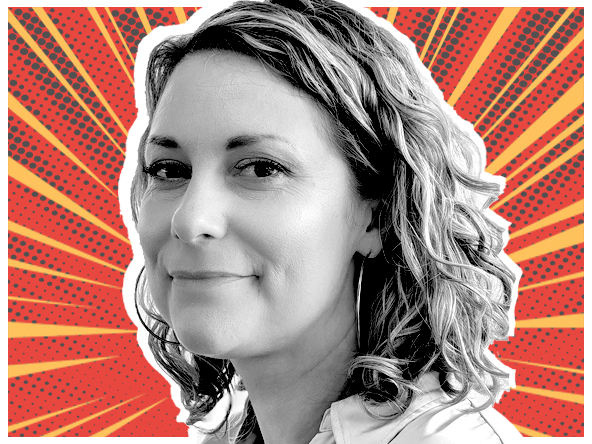Sarah Askew – Research Hero

Sarah Askew, Innovation Director, STRAT7
Sarah Askew’s 20-plus year career has seen her wear many hats, since starting out as a qualitative researcher. From pioneering new methodologies, to establishing and leading new business units at several agencies, and most recently heading up innovation and thought leadership at STRAT7 Researchbods, she’s always thrived when breaking new ground. As part of the STRAT7 AI Innovation Lab, she’s instrumental in shaping AI strategy and championing ethical innovation. Her thought leadership on issues such Gen Z and consumer attitudes to AI, coupled with delivering revenue-generating new solutions, showcase her commitment to innovating with impact and exploring new frontiers.
Sarah was nominated because "she is a tireless advocate for people. As an end-of-life doula, she supports families and trains NHS and care staff. Within STRAT7, she mentors colleagues, advocates for mental health, and promotes openness and inclusion."
1. What is the biggest challenge you have faced during your career?
While there’s certainly been some memorable work challenges I could regale you with – the time I left all the stimulus at the office right before running focus groups with a group of builders (try describing a new sealant pack design using only words), months spent cold-calling NHS managers to recruit them for studies, or the time the fire alarm went off right as I started a pitch for a large contract, necessitating a verbal ‘elevator pitch’ on the street outside – the most enduring challenge has been balancing career and home life, especially when I was a mum with a young child.
Fifty-hour working weeks were normalised in agency roles then, as was driving thousands of miles a week for fieldwork. I loved the variety and pace of my work though, and have been lucky to have a very understanding co-parent. I’m pleased to see the increasing focus on work-life balance and wellbeing in the industry now.
2. What will be the next big trend or development in the research industry, and why?
Despite the current revolution in practice that AI is making possible, and our ability to create virtual personas and carry out automated interviews, I predict a dial swing ‘back to basics’ particularly for qual. I think there’ll be a desire, driven by brands, for more in-person and person-to-person methods (even if they’re tech-enabled). For all we’re gaining in speed and cost-saving through advancements in AI, I think we’re at risk of losing customer empathy. I believe we may see an empathy drop if we lean too far into de-humanising insight, yet empathy is essential in making brand stakeholders care about and act on insight, and in fostering true customer closeness.
3. Who inspires you as a researcher?
At the risk of sounding trite, it’s the younger people that I work with. After 20 years in any industry, I think you’re inclined to believe you know quite a lot, and while you do in a way, it’s a dangerous quality in a researcher (and anyone in a leadership role) to rest too heavily on your own knowledge and preconceptions. I love working with colleagues whose world view and perspectives are really different to mine, and who challenge my thinking, ask interesting questions and make me realise I’m wrong, sometimes. As an innovator, I’m similarly inspired by people who can make me thing about things in new and interesting ways, or link seemingly disparate ideas together: Steven Johnson’s books and Blindboy’s podcast are my go-to for some innovation inspiration.

We hope you enjoyed this article.
Research Live is published by MRS.
The Market Research Society (MRS) exists to promote and protect the research sector, showcasing how research delivers impact for businesses and government.
Members of MRS enjoy many benefits including tailoured policy guidance, discounts on training and conferences, and access to member-only content.
For example, there's an archive of winning case studies from over a decade of MRS Awards.
Find out more about the benefits of joining MRS here.












0 Comments